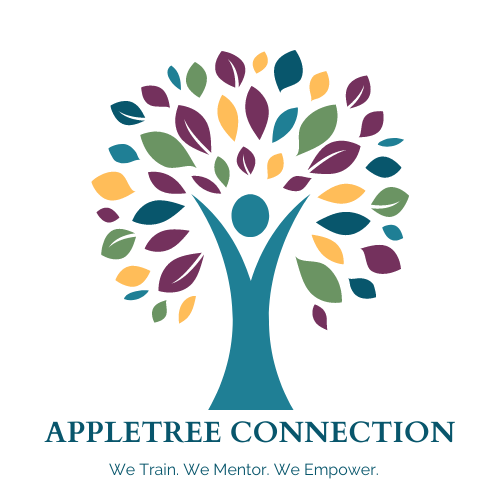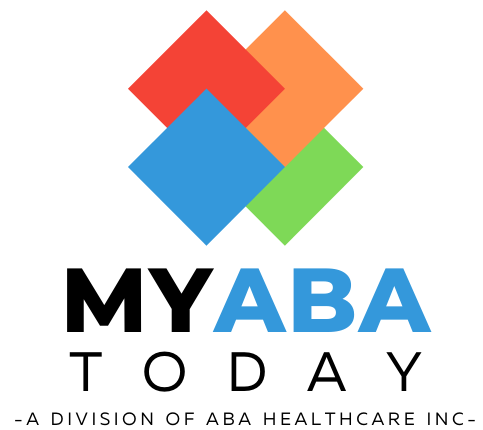You may have read Steven Covey’s “The 7 Habits of Highly Effective People.” Even if you haven’t read it, the book is referenced regularly enough in pop culture that you may already have a familiarity with it. The premise of the book is an outline of good habits exhibited by successful and, as the title states, effective individuals. Habit, however, is a generalized term for a behavior or a group of behaviors. The meet of this particular book centers around habits, which circles the topic of behavior in successful people.
So, what are the behaviors that the most effective, successful, and distinguished behavior analyst in our profession have in common? Success is more than a habit – Success is a behavior. A series of interconnected behaviors that over time have produced the desired outcome of success. Success may mean something different to everyone but for the purpose of this discussion, success is a generalized reinforcement that may have different values and definitions for each reader.
We covet the success of CEOs and entrepreneurs, from prospective behavioral models like Steve Jobs and Bill Gates to Mark Zuckerberg and Oprah Winfrey. Some people seem to have it all as if everything they touch turns to gold. Think back to all the people you’ve met who have been highly successful in life: What do they all have in common? You might say their success is due partly to education, age, timing, or luck. In reality, people who are successful in both business and life all adhere to basic key practices or behaviors. Volumes of books, blogs, and seminars can be found on defining and replicating these behaviors. Success is simply in the terms of research as a “sequence effect” of such practiced and reinforced behavior over time. Success is much more than mere luck, opportunity, coincidence, or chance. Success for anything in life can be attributed to a series of practiced and reinforced behavior over time.
The heart of MyABA Today is to promote the science of behavior analysis and to provide a community of resources for the public but it is also is a great desire to promote the behavior analyst. We want you to be successful!
So here’s your task analysis. The following are 7 essential behaviors that a highly effective, successful, and sought after behavior analyst must maintain in their repertoire.
1. Be the Expert!
Be the expert or in the language of today’s professional “be the Brand”.
Have you ever tried to hammer a nail with the heel of your shoe? I did once when I was a kid and didn’t have a hammer handy. It can be done, but I can assure you, it’s difficult – very, very difficult. So too is trying to build your distinction in a profession without branding yourself.
In essence, personal branding is the process by which successful people differentiate themselves by identifying and effectively articulating what makes them different or unique from their competitors – what makes them stand out from the crowd – a sort of discriminative stimulus if you will. This is especially important if you’re a service provider in a competitive field.
Personal branding is so important because if you don’t stand out from the crowd, that means you’re just like everyone else – a white jelly bean in a jar full of white jelly beans. And if you’re just like everyone else, why should consumers or clients choose you over your competitors? Answer: They shouldn’t, and they probably won’t!
Well, by effectively establishing your personal brand, you automatically become a red jelly bean in a jar full of white jelly beans. You stand out! MY ABA Today offers you a variety of ways to stand out with an increased web presence, publication opportunity, and associating with the best of the best.
Consider this; when developing your brand, find your strengths, and highlight them. Not every analyst is well versed in verbal behavior or crisis management, but the ones that have a talent for these specialized areas tend to stand out. Your brand is a special, individualized niche in which you thrive. Use your strengths to further push your brand into mainstream practice.
2. Adapt to the Changing World of Work
The world of work has been changing rapidly during the past decade due to increased globalization, the proliferation of online social media, and technological advances that are blurring the boundaries between work and personal lives.
However, in past years because of an incredibly difficult economy, changes have been even more rampant. Layoffs are the word of the day and for the FEW remaining jobs that are available, the competition is INTENSE, to say the least.
Personal Branding has been around for a while and really caught on when Tom Peters authored an article called “The Brand Called You” in a 1997 issue of Fast Company magazine. In this article, he talks about how everyone is a brand and has a chance to stand out, not just the large consumer products companies with massive marketing budgets.
“Regardless of age, regardless of position we happen to be in, all of us need to understand the importance of branding. We are CEOs of our own companies: Me Inc. To be in business today, our most important job is to be head marketer for the brand called “You.”
MYABA Today offers you a way to invest in yourself and accomplish your goals. Our online marketing and SEO placement allow you to be set apart and establish yourself in this changing professional world.
3. Have clearly defined goals
In the hit TV show Scandal, professional reputation-repairer Olivia Pope always asks her client’s one initial question: “What do you want out of this?” Pope starts with their end goal in mind and then works backward. Likewise, successful people take ownership in their own future by picturing what their intended outcome is first and then working toward that.
Goal setting is the Identification in advance of values or levels to be reached, often by a particular time.
If you want to succeed, you need to set goals. Without goals, you lack focus and direction. Goal setting not only allows you to take control of your life’s direction; it also provides you a benchmark for determining whether you are actually succeeding. Think about it: Having a million dollars in the bank is only proof of success if one of your goals is to amass wealth. If your goal is to practice acts of charity, then keeping the money for yourself is suddenly contrary to how you would define success.
We, as practitioners, consistently and effectively use goal-setting as a way to monitor our client’s progress over time. We are data-driven practitioners who develop ultimate outcomes and short-term objectives for treatment purposes. Based on the extensive body of research we have at our disposal, we can see how effective goal setting can be toward successful treatment. If we have this effective tool in our hands already, why not use it to our own advantage?
MYABA Today is here to help you in achieving your desired goal of distinction.
4. Take calculated risks
People like Steve Jobs didn’t become wildly successful by playing it safe. Successful people know that taking risks—within certain boundaries—is absolutely necessary. They know a failure is a viable option, and that they can learn and grow from their mistakes. And finally, they know that if you always reach for the easy, low-hanging fruit, you’ll never succeed in climbing to get the larger prize on top.
Investing in yourself may be the most profitable investment you ever make. It yields not only future returns but often a current pay-off as well. The surest way to achieve a better quality of life, to be successful, productive, and satisfied is to place a priority on investing in both personal and professional growth. The effort you put into consistently investing in yourself plays a large role in determining the quality of your life now and in the future.
Investing in yourself truly makes a difference in your life, your well-being, and your ability to thrive and perform to the best of your ability. The extent to which you invest in yourself, mind, and body, not only shapes the way you interact with the outside world, it often reflects the opinion you have of yourself. Your future is in large part determined by your willingness and ability to invest in yourself now.
MYABA Today is the best first place for your investment in your future development. MyABA Today is a leading online therapist directory combining geo-targeted homepage placement with optimized keyword search engine placement. It’s now easier than ever for you to find an ABA therapist or specific provider in the area that best fits your needs! Our goal to make it easy for people to find an ABA therapist in their area; as well as give behavior analysts and other professionals the visibility they need to grow their practice. If you are a Board-certified behavior analyst, psychologist, psychiatrist, social worker, or another related specialist we invite you to include your profile in the MYABA TODAY directory. Thousands of people use the Internet each day to find a therapist; don’t miss this opportunity to grow your practice, school, and center or promote your services.
5. Learn from other successful people
As the old saying goes, a mentor is someone whose hindsight can become your foresight. More simply, however, a mentor should serve as a model for the behavior you want to see in yourself. Most successful people surround themselves with mentors and positive influencers who help keep them focused. They recognize that they can benefit from the wisdom and overall “aura” of other successful people who forged their own way through the trenches of life. If you work on building and maintaining connections with professionals you admire, it will increase the likelihood that they will invest in you in return.
More professionals these days are actively pursuing mentoring to advance their careers. And whether you’re on the giving or receiving end, these types of partnerships can benefit your career.
A mentoring partnership can be rewarding to both people, personally and professionally. It’s an opportunity to develop communication skills, expand your viewpoints, and consider new ways of approaching situations. And both partners can advance their careers in the process.
Make no mistake about it, highly successful and effective professionals learn from other people continuously.
MYABA TODAY is a magazine and therapy network directory specifically designed to promote the treatment of applied behavior analysis and specialized professionals who work with individuals and families to provide ethical, collaborative, and research-based therapy services. MYABA TODAY is also ranked as one of the top therapist directories on the Internet, helping people seeking treatment to connect with therapists like you.
6. Building and foster meaningful relationships
You can’t be completely successful without working well with others. Successful people show respect to others by listening and responding to ideas and criticism and finding solutions that work for (almost) everyone. They don’t get too caught up in life or work drama that can bog them down, and they don’t take things too personally. Through contributing to the success of the team, they realize they’re contributing to their own success.
Networking, the art of building alliances, is a critical skill for professionals at all levels and in all job roles. It is often said, it’s not what you know, but WHO you know.” This maxim is not completely true – skills and knowledge are also critical for job success, but there is a ring of truth to it. Most positions are filled through referrals from employees’ networks.
Many people are intimidated by the word “networking” because they feel they don’t have the personality type and/or skills to pass out business cards to a roomful of strangers or function like a social butterfly. Understand that there are many ways to network and it is less important how you do it compared with doing it at all. Some people feel more comfortable networking one-on-one rather than in large groups. Rather than worrying about what to say when networking, focus on asking people about themselves and their work. View networking as getting to know others and letting others get to know you.
Creating lasting professional relationships is one of the biggest investments a person can make into their professional development. Building relationships in your profession can provide insight and support, especially when you feel like an island. Often, managing partners, firm administrators, and marketing directors don’t have a counterpart to turn to that they can approach with their complex issue and receive feedback based on experience.
By reaching out to trusted peers through MYABA Today, your entire career benefits from the relationship.
7. Never stop learning
You’ll notice that highly successful people love to read, and crave learning more. They are always absorbing more information they can apply to their lives and careers. This knowledge helps them constantly adapt and evolve.
At the heart of expanding your social graph and reinventing yourself is an unquenchable desire to learn—a mindset that stays fluid and facilitates personal growth. It is the learners, those willing to open their minds and augment their skillsets, who will be poised to succeed in the future.
A desire to learn is a fruitful asset that will fuel you throughout your life. Without this unquenchable desire to grow our understanding of ourselves and the world around us, we stagnate. We become comfortable with what we know and may feel that there isn’t anything else to learn. Of course, that kind of thinking is poisonous: there is always something that we can learn that will improve how we lead our lives and do our work.
Learning isn’t everything, however. On top of all these practices, it’s also important that we engage, discuss, and experiment with the knowledge that we obtain.
The sincere desire of MYABA Today is that we provide an online environment for your success and professional distinction in the field of applied behavior analysis to flourish and develop. We hope that you will find within our online listings the opportunities, connections, and our curation of current and relevant article the basic tools and inspiration to grow and flourish in your chosen field.











